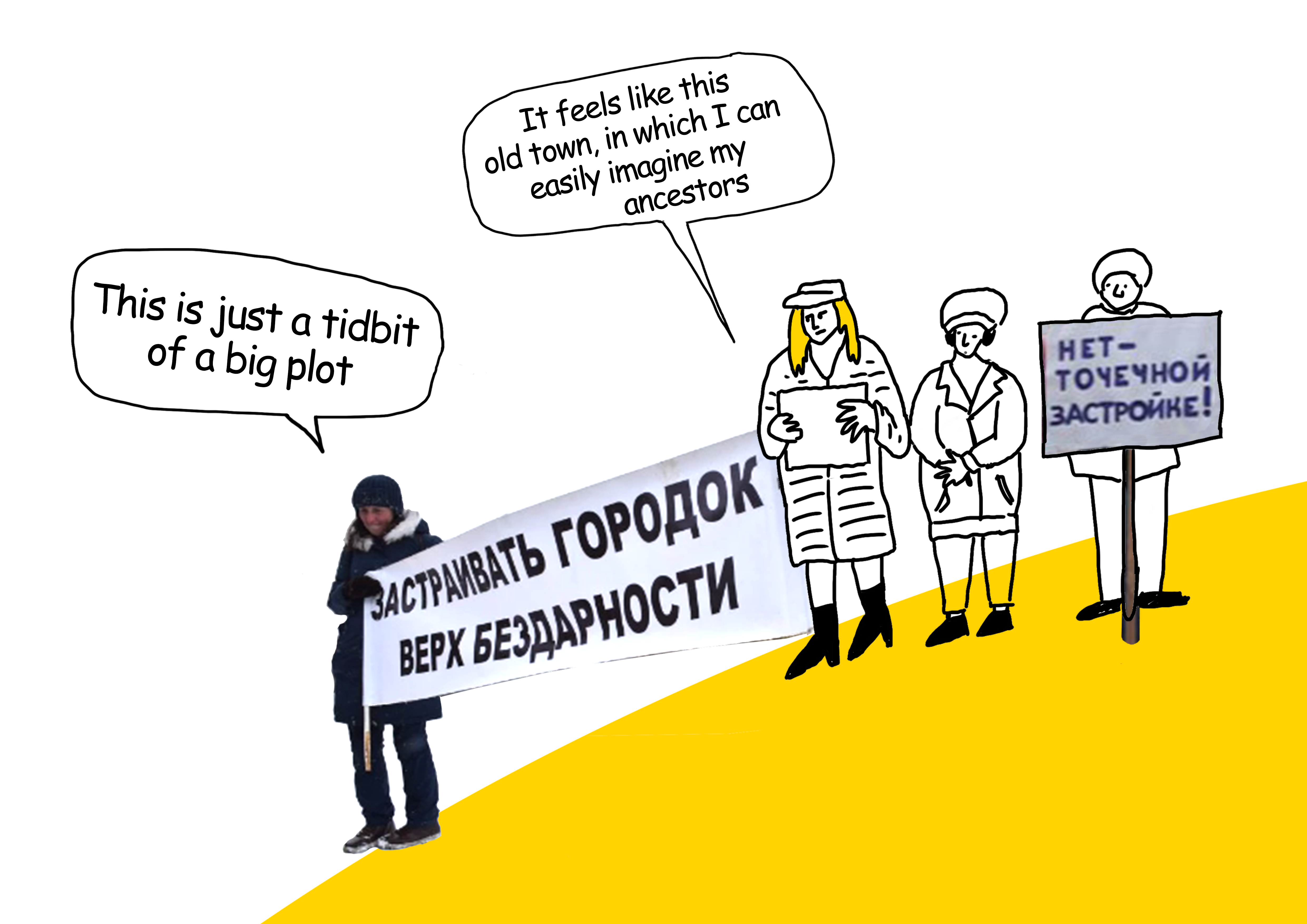
@ Luba Krutenko, 2024
What actors become involved and why? What contexts, institutions and alliances hinder or promote their involvement?
Growing authoritarian tendencies in Russia and the war make it difficult to engage in activism. Many are leaving, people have less money and motivation to engage in unpaid work, activists fear persecution and face existential and ethical dilemmas. Why do people continue to get involved in activism? What is their motivation?
For many, heritage activism remains a part of everyday life that continues despite fears about the future. For some - architects or local historians - the historical or architectural value of individual city buildings and the city as a whole seems indisputable due to their professional interests and biography. For activists - students, youth, people interested in the modern city - it is important to find a community of like-minded people and do something together. Artists and photographers express their artistic and documentary ideas through heritage projects; urban entrepreneurs see the potential for city development in urban heritage; residents protect their valuable spaces and buildings from development or demolition.
Political and administrative changes - such as military censorship, increasing state control over the public sphere, strengthening the role of governors, changes in the financing of civil initiatives, etc. - influence the nature of heritage activism and the specific practices that remain available to activists. However, activists' strategies varies in different cities and depend also on local conditions.







